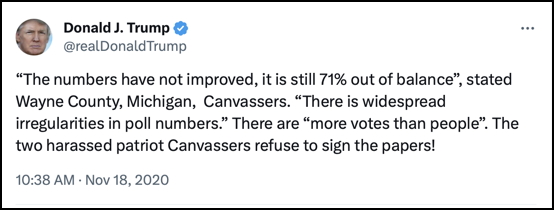Ron DeSantis’ 'Never Back Down' super PAC scraps $2.5M of ads in key states
A previous version of this article did not mention new conservative advertising by the group Fight Right.
After his landslide double-digit reelection in 2022, Florida Gov. Ron DeSantis' supporters (including right-wing author Ann Coulter) hailed him as the Republican who would crush Donald Trump in the 2024 GOP presidential primary before crushing President Joe Biden in the general election. But DeSantis' presidential campaign has struggled badly against Trump, and former South Carolina Gov. Nikki Haley appears to be the non-Trump candidate with the greatest momentum.
The latest ominous sign for DeSantis' campaign, according to AdImpact, is a major cancelation by the pro-DeSantis super PAC Never Back Down.
AdImpact reports that the group is "is canceling all of its 2024 reservations" in GOP primaries in Iowa and New Hampshire.
According to a tweet AdImpact posted on December 21, the "cancelations" they have "tracked" are "totaling $2.5M."
Poll after poll is showing Trump as 2024's clear Republican presidential frontrunner, although a Saint Anselm College Survey Center survey released on December 21 shows momentum for Haley in New Hampshire — where she now trails Trump by 14 percent among GOP primary voters, while DeSantis has had a 6 percent drop since December.
This is merely the latest setback for the Never Back Down super PAC. Last month, Chris Jankowski — a longtime DeSantis ally who was Never Back Down's chief executive officer — resigned abruptly. His resignation came shortly after a tense meeting between Never Back Down officials and DeSantis aides in Tallahassee, Florida that reportedly "nearly came to blows." The strife between Never Back Down and other DeSantis allies led to the creation of a spin-off super PAC dubbed "Fight Right."
But a DeSantis supporter and Fight Right representative told AlterNet and Raw Story that the campaign isn't really "dropping ads" but is "basically swapping placements so Fight Right can handle airtime."
The Fight Right rep said that beginning December 24, Fight Right "will place more than $2.5 million ahead of the Iowa Caucuses." On YouTube, Fight Right has posted an anti-Nikki Haley ad; a disclaimer says the ad "was not authorized by any candidate or candidate's committee."
The Florida governor has also been dogged by controversy surrounding Never Back Down stemming from allegations that he coordinated political spending, which is a violation of federal election law.



